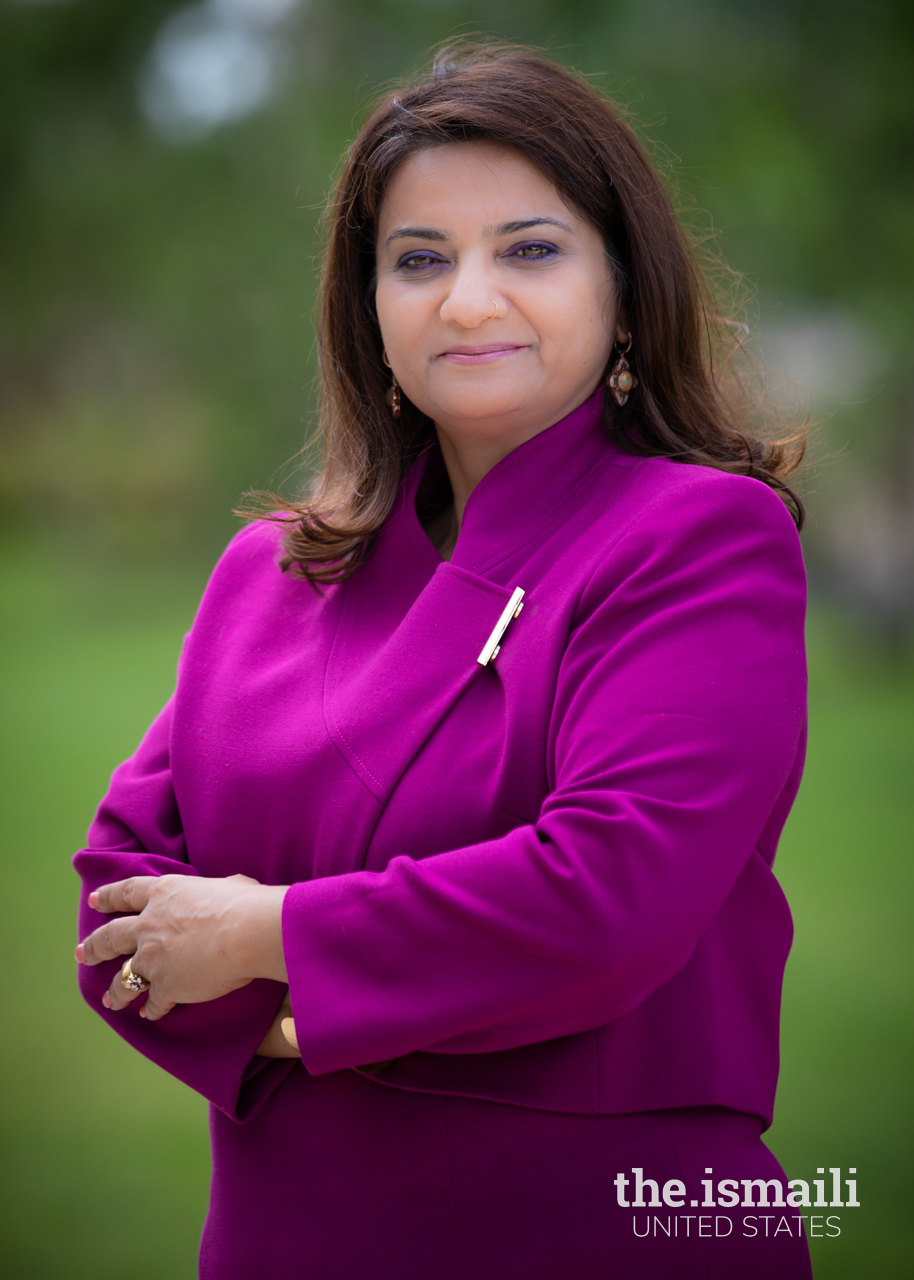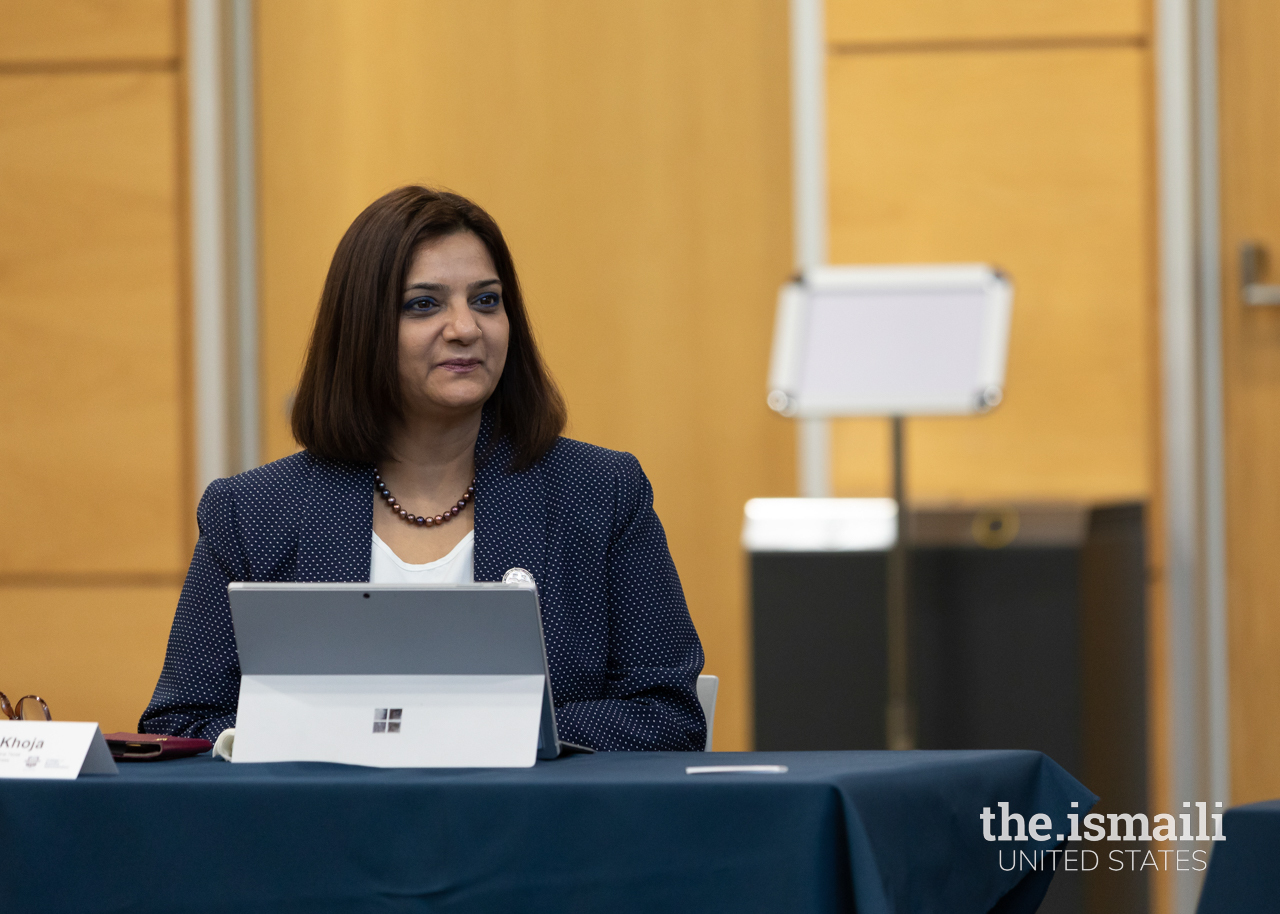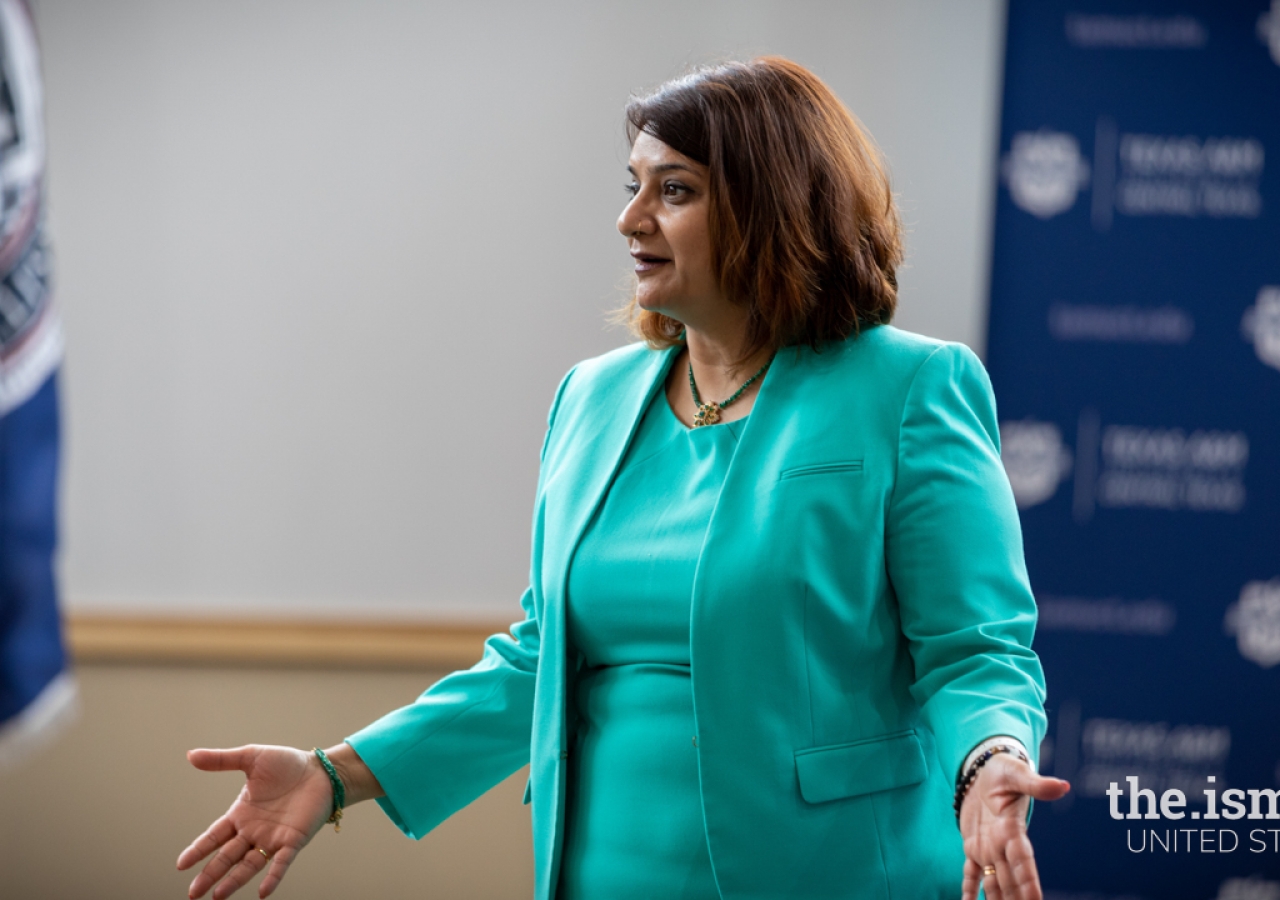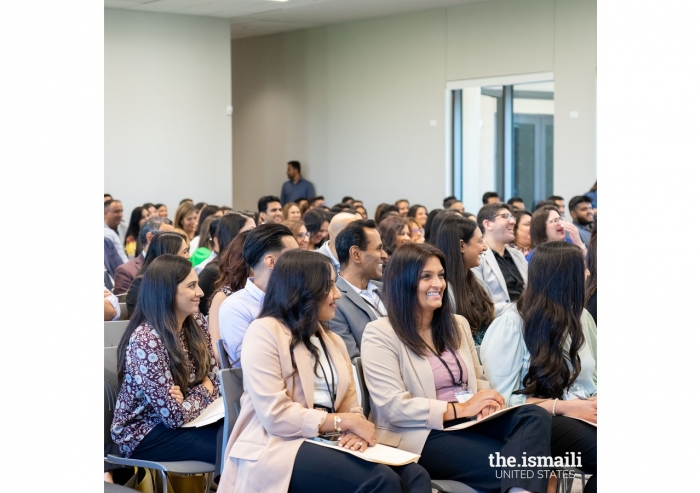Born and raised in Karachi, Pakistan, Faiza married at a young age and continued to pursue higher studies. She earned a Doctor of Management in Strategic Management from the University of Houston, came up through the faculty ranks at University of Houston-Downtown (UHD) and joined the UHD administration in 2014.
However, the journey was not an easy one for Faiza. “While I was doing my PhD, we found out that my first born had autism. It was less prevalent back then and so unexpected,” she recalls. Her priorities took a shift as she focused on finding the right care and support for her son. “I also had a six-month old daughter, but I told myself that I needed to complete my doctorate for my children. It was very challenging taking care of two children, running between therapies all day and writing my dissertation in the evenings,” but the drive to do something meaningful with her life pushed her forward.
When her 18-month-old daughter was also diagnosed with autism, Faiza decided to direct her energies towards becoming an advocate for inclusiveness education, not just for individuals with special needs but for the underserved segment of the population, including first generation immigrants and minorities. In 2006, she founded a special needs school with the vision to cater to the unique needs of children with any type of disability. Today, she continues her work as an advocate for diversity and inclusion at Texas A&M University-Central Texas.
“Higher education institutions are acknowledging the fact that we have people who look the same, act the same, and think the same in leadership positions at universities and colleges, and that has to change because the landscape is changing,” says Faiza.
Pic 2

Continuing her remarks, Faiza said, “It’s very difficult for women, particularly women of color, to get a senior leadership role or a board position in higher education, but it is not impossible. There will be roadblocks and while maintaining authenticity, women need to be strategic in their approach to navigate the path to grow. Finding the right mentor(s) who can support and guide you along the way is absolutely essential.”
Globally, representation of women within senior leadership in higher education remains unequal. While it is encouraging to note that 39 out of the top 200 institutions in the world (19.5%) are currently led by women, a slight increase from 17% in 2019 (Bothwell, 2020), women’s representation in leadership continues to lag far behind.
The lack of diversity is also widely apparent. According to a 2017 study from the American Council on Education, about 30% of college presidents are women, and women make up about 30% of college boards of directors. Even more concerning is that roughly 5% of college presidents are ethnic minority women.
Talking about making diversity and inclusion a priority at Texas A&M University-Central Texas, Faiza says, “We strive to ensure that our faculty reflects our student body.” According to the 2020 Census, people of color make up 95% of Texas’ population growth. “To recruit diverse faculty, we intentionally seek out credentialed individuals from disparate backgrounds. But to be truly equitable and inclusive, they must also have a voice. Not only have we trained our faculty to be inclusive in the classroom, but we have developed a mentorship program for our diverse group of faculty,” she adds.
When she first joined as the Dean for the College of Business Administration in 2020, Faiza’s focus was on understanding the needs of her stakeholders. “I came in and talked to people. It’s important for a leader to listen. I listened to the faculty, to the staff members, to the alumni and to the community partners. And that gave them confidence in me, and I feel that they have not only given me honest feedback, but that they have embraced me and given me a lot of respect.”
About her leadership style, Faiza says, “If you’re authentic and transparent, people may not like your decision, but they will respect you for it. And if being genuine makes you vulnerable sometimes, that’s okay too.” She adds that it is imperative for a leader to pull the entire team together to accomplish the greater vision, step up to take blame when things go wrong and give the team credit for shared successes. Her ability to articulate a solid vision for the College as well as build a stellar team has translated into a strategic plan that will help the College move forward.
Pic 3

Speaking about the impact of COVID-19 on higher education, Faiza feels that all industries have been forced to recalibrate and design sustainable business models with the ability to quickly change and adapt, to survive. The pandemic has provided the education sector the opportunity to explore the use of non-traditional ways of teaching, be it a hybrid teaching model or the efficient use of technology.
Faiza has some recommendations for colleges:
“In the world of Google, where information is at our fingertips, all disciplines (especially pre-professional disciplines such as business and computing) should foster the liberal arts competencies that employers are looking for. These include critical thinking, problem solving, communication, knowledge application, agility, and systems-thinking. This is an interdisciplinary world of knowledge economy and learners need to embrace it if they want to succeed and be effective leaders.”
Faiza also elaborates on embarking on a giving campaign for the College. “I must give credit to the Aga Khan Foundation for helping me develop my skills and confidence to effectively raise funds,” she says, having served as the Chairman of the Aga Khan Foundation in the Southwest region for two years. She adds, “I was able to create awareness about the work of the Aga Khan Development Network and garner commitment for the mission to improve the lives of people around the world from donors and supporters who shared similar purpose and ethos. It was a great learning experience for me.”
Faiza also served as the Chair of the Nizari Federal Credit Union for two years and helped them develop a strategic plan. She recollects:
“It was my first experience of using my expertise to build a professional organization, and for it to be a faith-based organization, made it very rewarding. The purpose of what I'm doing today in my career as well as what I have done in a voluntary capacity, has all come together to fruition. It was not intentional, but it has been a natural progression of helping provide opportunities for upward social mobility, both to students as well as to the community. And that has been exceptionally gratifying.”
Faiza’s face lights up when she talks about her experience of teaching Strategic Planning & Management at the graduate level and giving her students a Shark Tank experience. “I loved teaching at the graduate level; the students would bring in so much energy. And I really had to be prepared and be on my game. Just one student saying I got a job because the employers were interested in the project that we did in your class would mean “mission accomplished” for me. I would love to teach again.”
Recognized in her field for her scholarly publications in both academic and practitioner journals, such at the Journal of Business Strategies, the Journal of Small Business Management, Journal of Management Issues, and many others, Faiza continues to do research work. “My interests in social justice, humane entrepreneurship and sustainability will influence the next phase of my journey.” she explains.
Giving credit to her family, she says, “I have learned a lot from my children. They've given me patience and a perspective in life. They gave me a goal and I really owe it all to them.” Her innate desire to grow and accomplish greater things in life coupled with her supportive spouse, Moazzam Khoja, has been instrumental in her success.
She offers valuable advice to others:
“You can grow and learn at any age. We are constantly evolving, and that has been my approach in life. Take time to self-reflect. And be proud of your accomplishments. Humility doesn't mean that you should not be proud of yourself. Do not give up. Keep on exploring until you find where you belong. Don’t compare yourself to others. Don’t let anyone tell you that you can’t do it. But excel at what you do and that will bring the confidence to make you unstoppable.”









